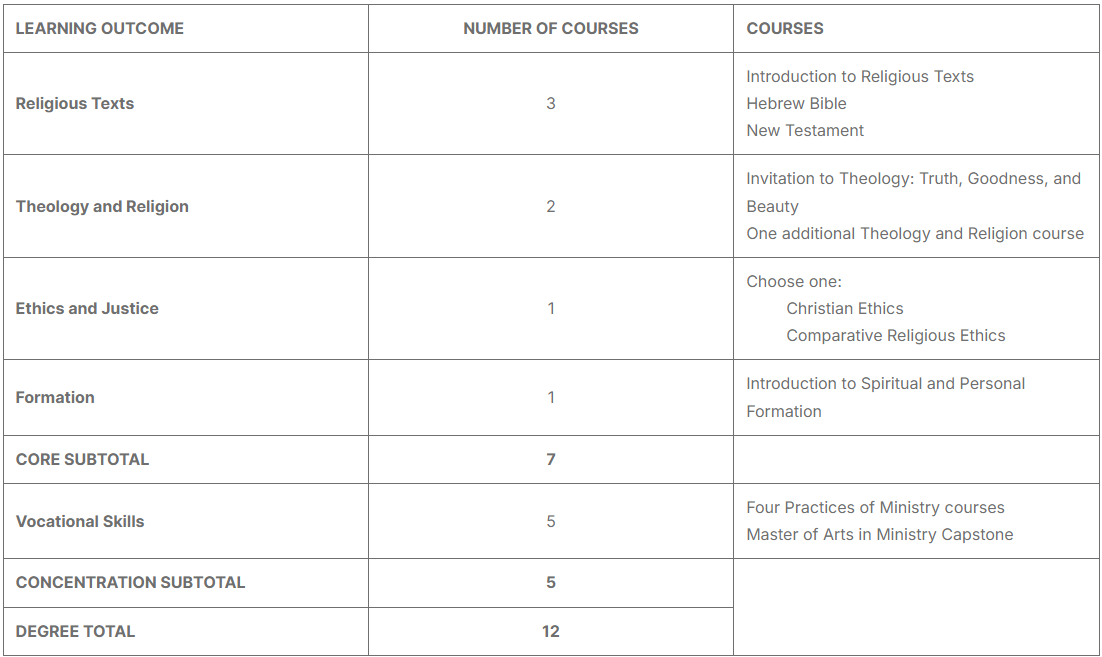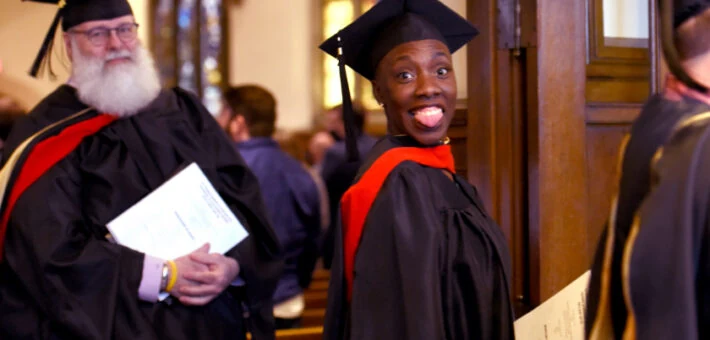Master Of Arts in Ministry
Prepare Yourself For Ministry
The Master of Arts in Ministry degree is a focused academic and practical ministry training program, designed for flexibility and efficiency. If you’re preparing for ministry but do not need and desire an MDiv degree, the MAM will provide you with foundational ministry knowledge and skills at a fraction of the time and cost.
This program may be a good fit for you if you are interested in pursuing:
- Bi-vocational church ministry (solo pastor, deacon, etc.)
- Associate pastoral ministry
- Youth/children/family ministry, church planting, etc.
MAM Program Details
Required Credits
To graduate with a MAM degree, you will be required to complete a total of 36 credits. This typically involves the completion of twelve 3-credit courses, including a capstone project course.
Time to Complete
This 36-credit program can be completed within 2 years if you maintain a full-time course load (9 credits per trimester).
Distance Learning
The MAM can be completed entirely via distance learning. All courses have the option to attend classes either in person or via Zoom, and many courses can be taken completely asynchronously with no required class meetings.
A graduate of United’s Master of Arts in Ministry degree program will be able to:
- interpret a selected biblical passage from multiple historical and contemporary perspectives and using one or more critical methods, demonstrating an understanding of the influence of their own situatedness on that interpretation;
- identify and pose distinctly theological questions in texts, artworks, and human existence;
- articulate the value of theological study in light of their own religious convictions;
- critically interpret, analyze, and reflect on a selected theological text or perspective in its historical context as well as through the lens of modern questions and challenges;
apply to their vocational context or academic study an appropriate critical analysis of and reflection on a selected moral dilemma from a variety of Christian OR interreligious ethical perspectives; - evaluate one’s spiritual development in light of one’s own “sources of the self” and religious horizons;
- identify, transform, and/or create specific sources of spiritual power that resist human degradation and enhance human life;
- demonstrate a reflective awareness of how theological study and practical learning at seminary has shaped and empowered oneself as a religious leader;
- demonstrate effective graduate-level writing and argumentation skills; and
- demonstrate the capacity to intervene articulately and persuasively in one’s existing field of ministry / religious leadership in a way that a) responds to some real-world problem or question, and b) integrates the knowledge and skills cultivated in seminary.
Program Course Guide Sheet
For Academic Year 2024-2025

Want to Learn More?
Fill out the form below and a member of our Admissions team will be in touch soon.
